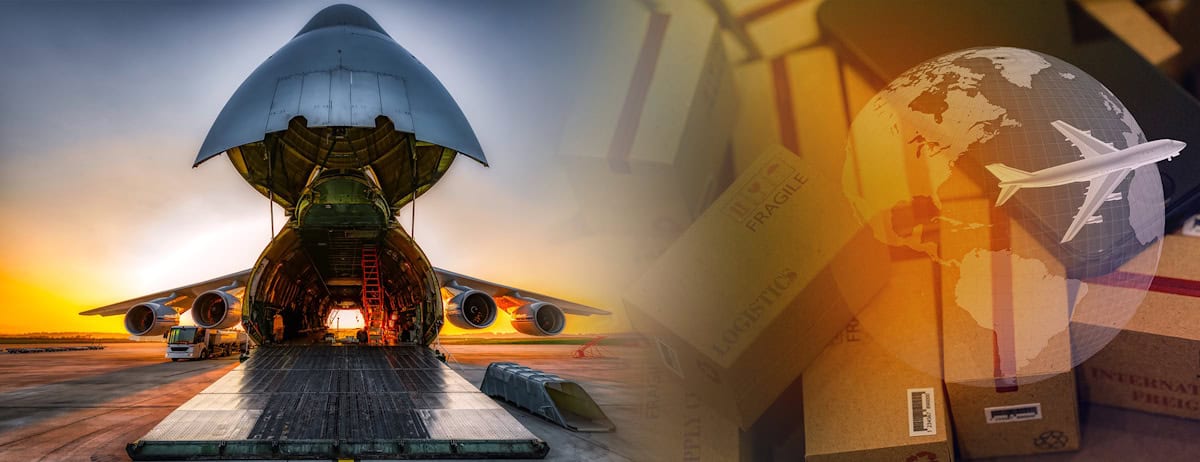
Celebrating 60 years of excellence in logistics and international trade
As part of the 2025 Go Global Awards campaign, we’re featuring innovative companies that exemplify leadership, resilience, and global impact.
In this spotlight, KRIEGER Worldwide | Norman Krieger, Inc. shares expert insights on navigating customs with precision and preparation — reflecting their six decades of commitment to helping clients move goods efficiently and compliantly across borders.

Navigating Customs: Tips for Smooth International Shipments
(By KRIEGER Worldwide | Norman Krieger, Inc.)
International shipping can feel a bit like walking a tightrope — there’s a lot to balance, and one misstep can create delays, fines, or frustration. Among the most challenging aspects is navigating customs. For newcomers, customs might seem like a bureaucratic hurdle, but in reality, it’s a system designed to regulate trade, collect duties, and ensure safety. Understanding how to work within it, and perhaps more importantly, how to plan ahead — can make international shipments far smoother.
Customs regulations vary widely by country. Each destination has specific requirements regarding documentation, duties, tariffs, and prohibited items. Even small errors, like a typo in a product description or an incorrect Harmonized System (HS) code, can trigger inspections or delays. That’s why freight forwarders and Customs Brokers, like KRIEGER Worldwide | Norman Krieger, Inc., play such a crucial role. We guide clients through the maze of requirements, reducing the risk of costly errors.
One key to smooth customs clearance is preparation. Start by ensuring that all paperwork is accurate and complete. Bills of lading, commercial invoices, packing lists, and certificates of origin are common documents that must be aligned with both the exporter’s and importer’s requirements. For example, if you’re exporting textiles from the United States to Europe, a small discrepancy in the stated fiber content could cause customs officials to hold the shipment for clarification. It might seem minor, but the delays can cascade into bigger operational headaches.
Another important factor is understanding tariffs and duties. Different products are subject to varying rates, and some may even qualify for reduced tariffs under trade agreements. Being proactive, calculating potential duties and planning for them in advance, prevents surprises at the border. In practice, a U.S. electronics company shipping to Mexico might find that certain components are eligible for preferential treatment under USMCA, which could significantly reduce costs if properly documented.
Customs compliance isn’t just about avoiding penalties; it can also improve efficiency. Shipments that are properly documented and classified often move faster through ports, which can mean shorter lead times, lower storage costs, and happier clients. Conversely, a shipment flagged for additional inspection can sit in a customs warehouse for days, or even weeks. That’s the difference between smooth operations and a logistical headache.
Working with experienced partners is particularly important for businesses new to international shipping. Freight forwarders and customs brokers can anticipate challenges and proactively address potential issues. For example, a recent client of ours, a U.S.-based manufacturer exporting machinery parts, was unfamiliar with the documentation required for a shipment to South America. By coordinating with customs agents and preparing detailed paperwork in advance, we avoided delays that might have cost the client both time and money.
It’s also worth noting that customs processes are increasingly supported by technology. Electronic filing systems, AI and automation tool, and online tracking platforms improve accuracy and visibility. That said, technology alone cannot replace human judgment. Complex shipments, regulatory changes, and unique scenarios still require expertise, foresight, and sometimes a bit of creative problem-solving.
Understanding local regulations in the destination country is equally important. Some countries have strict rules on labeling, packaging, or product standards. Missing these requirements can result in delays, returns, or fines. For example, a food product exported from the United States to the European Union may require specific labeling, health certifications, or testing documentation. Knowing this ahead of time ensures a smoother flow through customs.
Insurance is another layer to consider. Even with careful planning, shipments can be delayed or damaged. Freight forwarders can help clients arrange insurance coverage, providing peace of mind. After all, a delayed shipment is not just an inconvenience, it can affect production schedules, sales, and customer satisfaction.
I should also highlight the broader context of global trade. KRIEGER Worldwide has been nominated for the 2025 Go Global Awards, taking place in London on the 18th–19th November 2025, hosted by the International Trade Council. This event is more than an awards program, it’s a convergence of global business minds, a platform to exchange ideas, foster collaboration, and create opportunities in a fast-evolving world. Being recognized in this context reflects our commitment to excellence in helping clients navigate complex logistics and international trade.
Ultimately, navigating customs successfully comes down to preparation, expertise, and vigilance. Freight forwarders serve as guides through this intricate process, helping businesses anticipate challenges, maintain compliance, and move goods efficiently. The rules may seem complex at first, but with careful planning, they become manageable. And in some ways, mastering customs isn’t just about avoiding problems, it’s about creating a smoother, more predictable supply chain, which can be a real strategic advantage.
So, whether you’re a small business shipping a handful of products or a large company managing global exports, understanding customs is essential. Take the time to learn the requirements, work with experienced partners, and plan ahead. Doing so not only reduces risk but also ensures that your goods move efficiently from one market to another, supporting growth and reliability in a world that demands both.
About KRIEGER Worldwide | Norman Krieger, Inc.
KRIEGER Worldwide is a trusted freight forwarder and customs brokerage firm with 60 years of experience helping businesses simplify international logistics. The company combines expertise, technology, and customer service to ensure smooth cross-border trade.
KRIEGER Worldwide is nominee for the 2025 Go Global Awards, hosted by the International Trade Council in London, United Kingdom — a global event celebrating companies driving innovation and international success.
